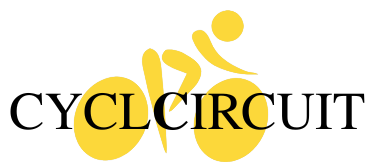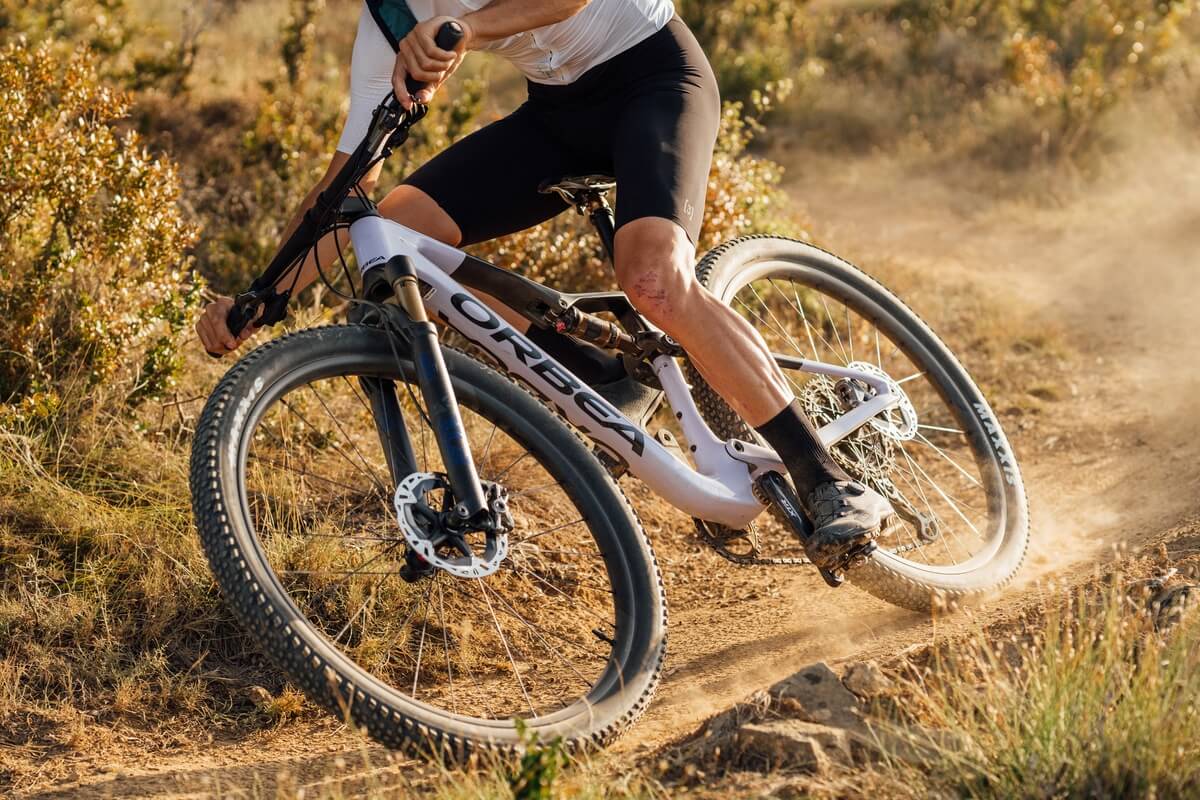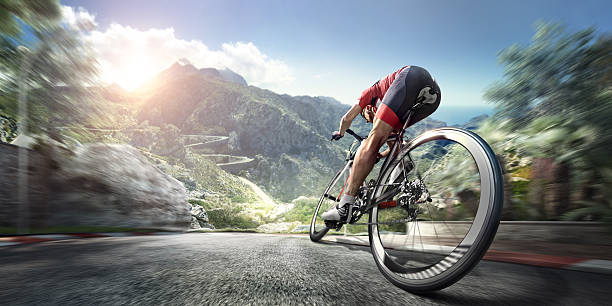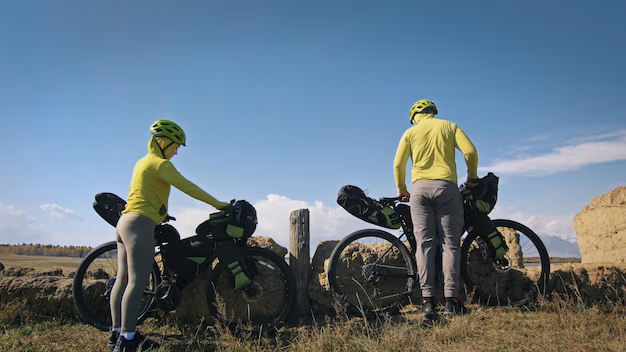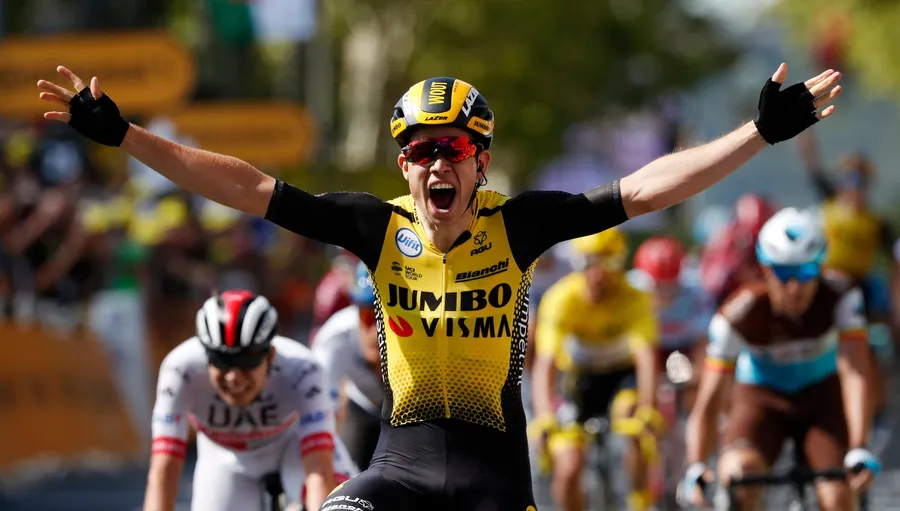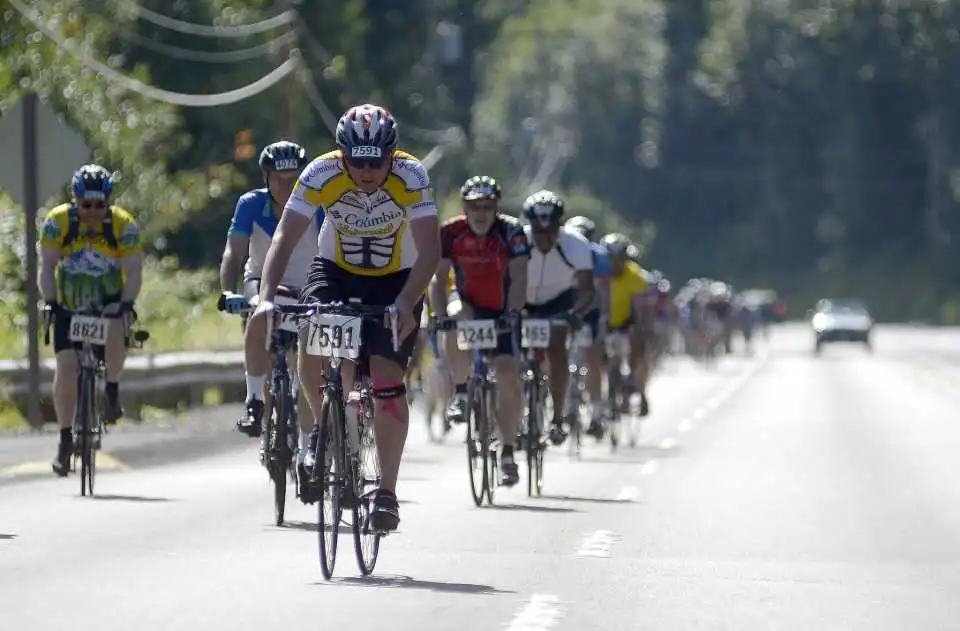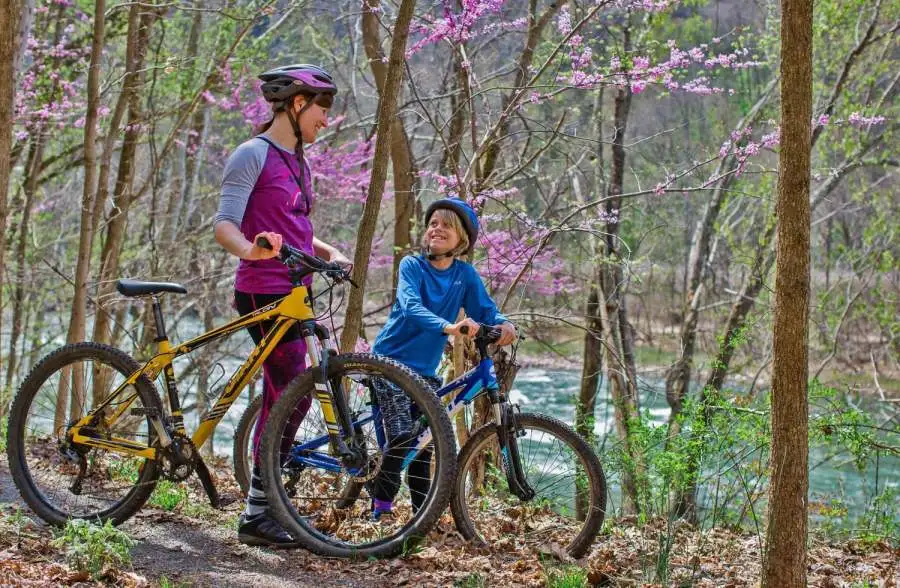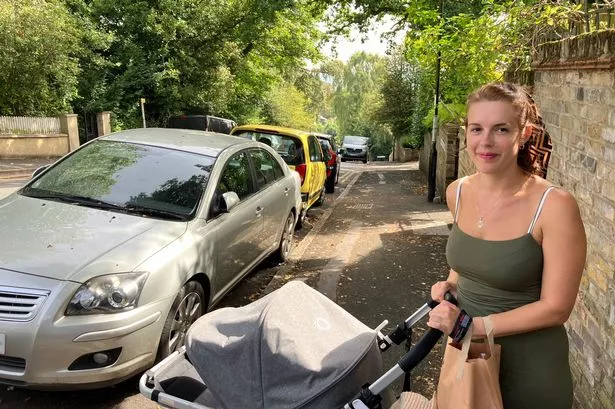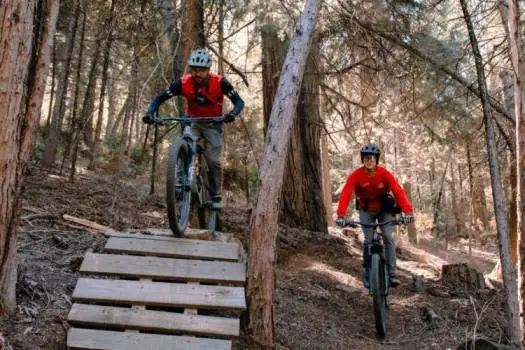Rider Interview: Jakob Fuglsang has been on the cusp of big things for a while, with wins and podium places in his 14 year pro career. 2019, in his own words, was his best with a Classic win in Liège and a Vuelta a España stage win. Alastair Hamilton caught up with Jakob at the Astana team presentation in Spain to hear his thoughts on 2019 and looking forward to 2020.

The Classic win – Liège’19
Take a look at Jakob Fuglsang’s palmarès – impressive! From junior Danish National mountain bike champion in 2002 up to 2019 and overall winner in the Critérium du Dauphiné and the Vuelta a Andalucía, Classic win in Liège–Bastogne–Liège, Grand Tour stage win in la Vuelta a España, plus 2nd in Strade Bianche and Flèche Wallonne, 3rd overall in Tirreno–Adriatico and the Amstel Gold Race. 2019 was his break through year, he may be 34 years-old, but he still talks like a junior starting his first season.

Before the start
PEZ: Obviously, 2019 was a good year for you. Would you say it was your best year?
Jakob Fuglsang: Yeah, definitely. It was my best year.
PEZ: And which would you say was the better win for you, the Grand Tour stage or the Classic?
Classic. Although winning the Dauphiné was also something really special, but I won Dauphiné two years ago, so I had that one ticked off already. Liège was special.

Liège’19
PEZ: How did you feel that day, in Liège, as it went on?
Actually, you know it was terrible in the beginning because it was so cold and rainy and wet, but I had looked at the forecast and it was to be okay once we came to the finish line, it was supposed to be dry, so that was something. We just had to get through the day and make sure not to get cold and eat enough. It was better to stop and put more clothes on, put on a different pair of gloves, change the rain jacket one extra time to stay warm, because that’s the most important thing in these races. You saw that in the World Championships. You get cold in the final and…. Once you get cold it’s difficult to warm up, just like not eating. And so that was like my main focus and that’s how the race passed. I’d had such a good week already. So I was quite confident that I could be there, but you never know on the day.
PEZ: Are you the kind of rider who opens the curtains in the morning and sees rain says; ‘oh, shit’ or ‘oh, great!’?
No, I go ‘oh, shit!’ I’m not bad with the rain, but I’m also not better with the rain. I may be better than others with the rain, some others are even better, and prefer it. I don’t like it. I like it when it’s sunny.

The Tour crash
PEZ: So you would say your high point was Liège and the lowest point; the crash in the Tour?
Yes, the second crash in the Tour, for sure. To have to abandon… I was coming back from the first crash on the first stage, and I was starting to feel a hundred percent again, and then to crash one more time, that was a hard one. To be honest, I’ve done the Tour so many times and I’ve crashed in the Tour and the Vuelta, so many times that, especially in the Tour, that I go into the race and know that it’s one of the things that can happen and that’s just how it is in the Tour. And then of course, having had such a great first part of the season, it’s kind of like, okay, shit happens and that’s it. Of course it’s the biggest race, but this is bike racing.
PEZ: looking at the way you rode in the Classics and in short stage races, do you not think that maybe you should just stick to them and forget GC in the Grand Tours, or is it just something you have to do?
I don’t know, maybe, but I don’t think that one thing excludes the other. This year, if you don’t do the Tour, then what do you do? You sit at home on the couch or you go for stages. Of course there is that possibility, like at la Vuelta, but I still think I have the potential to do well in a Grand Tour and no matter how you look at it, especially the Tour de France, top ten is still a very big performance and something special. I don’t think you have to sacrifice that you cannot do the other races, and you cannot do the Classics and stuff like that. I like the fact that you don’t have to only focus on the Tour de France. If somebody said to me, ‘okay, now you have to decide we only focus on the Tour; to do the Tour good or all your other races, good.’ Then I would choose the wide program where you have lots of nice races to focus on. I don’t think that you have make that choice, maybe if you are… Chris Froome, you have to do it like that, but for me, I don’t think it’s worth it. I still like to try to go for a good GC in a Grand Tour.

On the way to Liège
PEZ: In 2020 there are the Classics, Giro, Tour and then the Olympics, a big season.
Next year I think that would be too much, so I will go for the Classics and have the possibility of going from Flèche and Liège to the Giro, and then to the Tour just to help Lopez and to prepare for the Olympics. My personal opinion is that doing GC in the Tour and then being 100% for the Olympics, I think is going to be difficult. I would say the best possible way is that you have to not finish the Tour, because it’s so close.
PEZ: You’ve also got travel to Japan and it’s probably going to be humid and the course looks tough…
I was in Japan to do the Saitama, we went on a humid day, pouring rain, to see to see some of it (the course), it’s tough. The climb 30 kilometres from the finish, like the toughest bit is to the finish. Proper, proper hard climb, steep that’s for sure.

Strade Bianche action
PEZ: You live in Monaco, so do you ever train indoors?
I train when it’s sunny, when it’s raining I go to the gym. No, I sometimes out in the rain. I have a trainer, but often I get on it and I sit there for twenty minutes, half an hour and look out the window, pedal a bit more, look out the window again and think ‘I’m gonna get dressed and go out’, ride on the coast and you stay warm and that’s it. Once a coach said to me: ‘Listen, when it’s raining take a rest day as the day after it will be sunny and you will be fresh instead of killing yourself. Then the next day you’re fresh and motivated to go out and train harder.’ I wonder how I managed when I used to lived in Denmark or even in Luxembourg, there was terrible weather.
PEZ: Is that the biggest advantage of living in Monaco?
Yeah, and the mountains. Here (Spanish Costa Blanca) you have climbs, but once you get to January, February, March you want to climb some longer climbs, there in Monaco there are long climbs of an hour or so. And I think that makes a difference.

The Liège podium
PEZ: Who do you train with when you Monaco?
It depends who’s there. The Australians, they go back home, so now there’s nobody, well not so many. I used to train a lot with and then used to train with Michael Valgren, when we were teammates. Then last year we weren’t teammates anymore and basically we had programs that cross each other all the time, so I trained alone. Otherwise there is Richie Porte and Kragh Andersen of Sunweb has moved down here now, so I’ve been training quite a lot with him before coming here. I was going out with Eros Capecchi, but he’s gone back to Italy now.
PEZ: Girona used to be the place, now it seems it’s Andorra or Monaco.
I think the ones who live in Andorra, many of them also have a place in Gerona. The roads are blocked with snow now anyway. One of the advantages of Monaco, last year instead of coming on this camp, I stayed home because I went to Tenerife. Maybe there was one week camp here then I went to Tenerife in January. I could stay home for three weeks. My wife said to me yesterday, that since I left there was one hour rain, the rest of the time it has been blue sky, it’s better than here. It was so windy the day we arrived.

A bit of basket ball
PEZ: What about Van der Poel, it used to be track riders that were making it on the road, now its cross riders. Although they are still only a small percentage of the peloton.
Yeah, but I think it is quite logical when it when it comes down to it, it was the same with the mountain bike guys back then and the thing is, in mountain bike and cyclocross, you don’t have a team, you don’t have anything; you start 3, 2, 1, GO! The strongest guy wins. So if you take the winners from mountain bike, cyclocross or whatever, they are strong guys. Take five good riders and you put them on the road, they will be strong.

Fighting it out with Alaphilippe in Flèche Wallonne
PEZ: Van der Poel is special though?
He is super strong. He seems like a wonder-kid, but I think he still has his limitations. He’s quite a big guy. I was asked by a fan what I thought about Van der Poel in the Grand Tours, I don’t think that’s gonna happen. But, yes he can be the one to win Roubaix, Flanders, Amstel and maybe the short stage races, if they are not too difficult. I raced against him two years ago in the Arctic Race, and yes he won all the stages where the finish was like 1K uphill at 3 or 4%, he won them all. But the first time we hit a real climb… he was gone in the final. He’s young and he can improve, and he needs to maybe learn to preserve his energy a little bit better, race tactics and stuff, he’s a big guy.
PEZ: He’s still young and trying to do everything, maybe he’ll burn out?
You never know.

Back in 2012 with RadioShack
PEZ: Do you remember when you were at RadioShack, you had problems with the team, they stopped you from riding the Tour. Did you learn anything from that?
No, not really. I mean, back then it came down to a question of who was going to stay with the team and the sponsors really wanted an American rider to ride and I got into a disagreement with Bruyneel over that. It was maybe not with his good will that he had to take that decision, but he was the one who had to call it and the fact that after that he said ‘okay, you don’t have to stay’. But it was so much for that, it was also because of missing payments and money not being there. It’s a little bit like what happened in Bahrain last year, where they also had problems with the salaries.
PEZ: Who was your hero when you were young?
I think it was not that I had a real hero, not that I remember. I did mountain biking and Absalon was a big star then in those days. When I was a kid and I was watching the Tour, there was Bjarne Riis, he was the big guy.

The happy couple
PEZ: You obviously have good taste because your wife was a model, where are the best podium girls?
That’s a good question. The best one is at home.
PEZ: Very diplomatic.
No, I think I’m quite lucky.
PEZ: Other riders keep mentioning Poland.
I’ve never raced in Poland. There’s so many races that I’ve never done. I’ve never done Australia, I’ve never done Poland. I kind of have the same race program year after year, after year.

2017 Dauphiné
PEZ: So is Monaco home now… Forever?
For me yes, but I don’t think forever. The day I don’t need the mountains anymore in my backyard, and the kids are getting older and it’s nice to be closer to the family and my wife she’s close to her family, so… After my career we will probably move to Luxembourg.
PEZ: Your hopes for the future after you stop racing?
Start my own team! Yeah, I don’t know. It could be. I mean I don’t want to be a sports director, just to be a sports director. If I continue in cycling as a sports director then it should be to make a difference, but we will see. It could also be something completely different. I joined a clothing brand this year, so a Danish clothing brand newly started and that could also be a possibility to work with. It’s quite interesting and could be more than I thought, but who knows? You never know. I think it’s important to have possibilities.

Vitalii and Jakob
# Big thank you to Vitalii Abramov for setting up the interview and good luck to Jakob. #

Astana team 2020
Astana team website at: http://www.astanaproteam.kz
